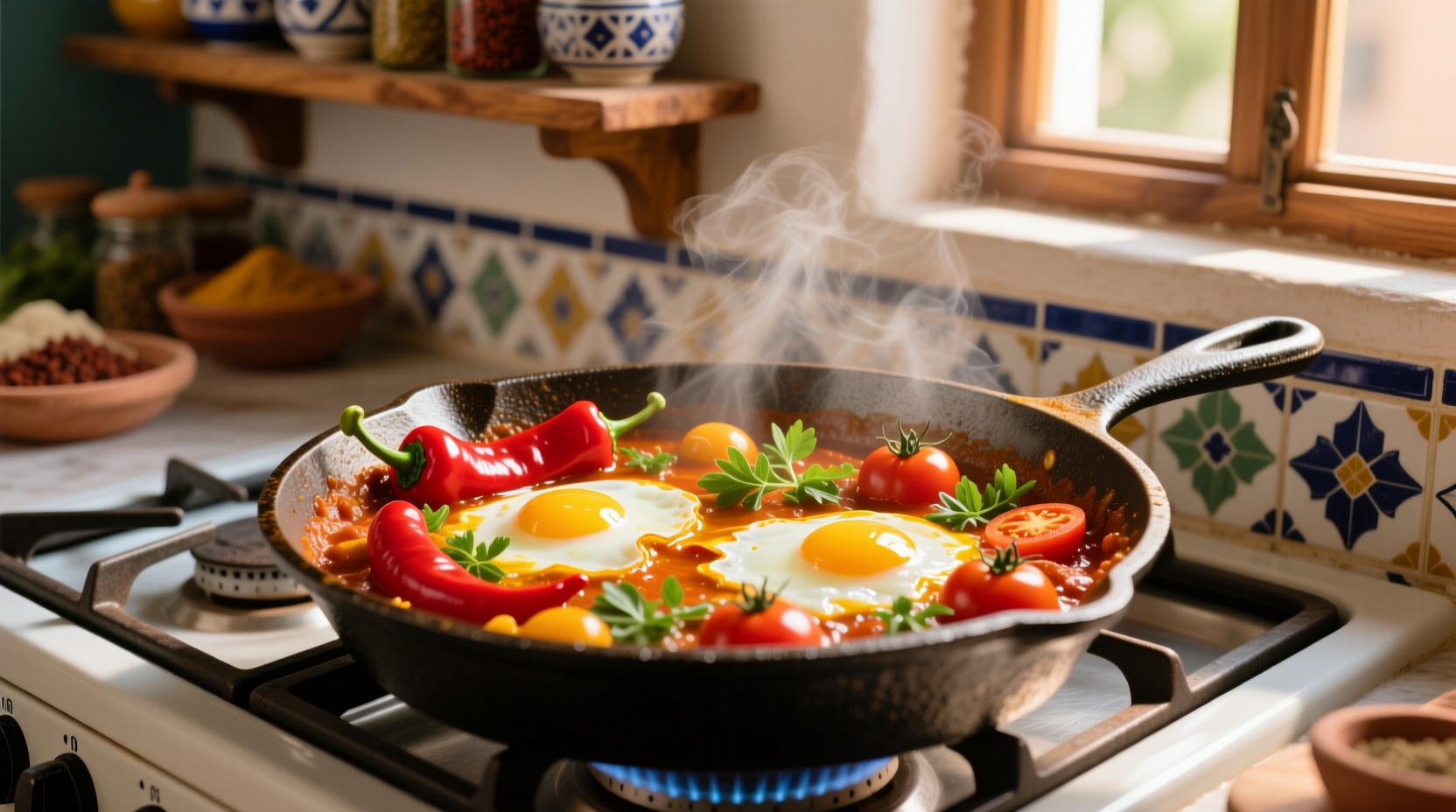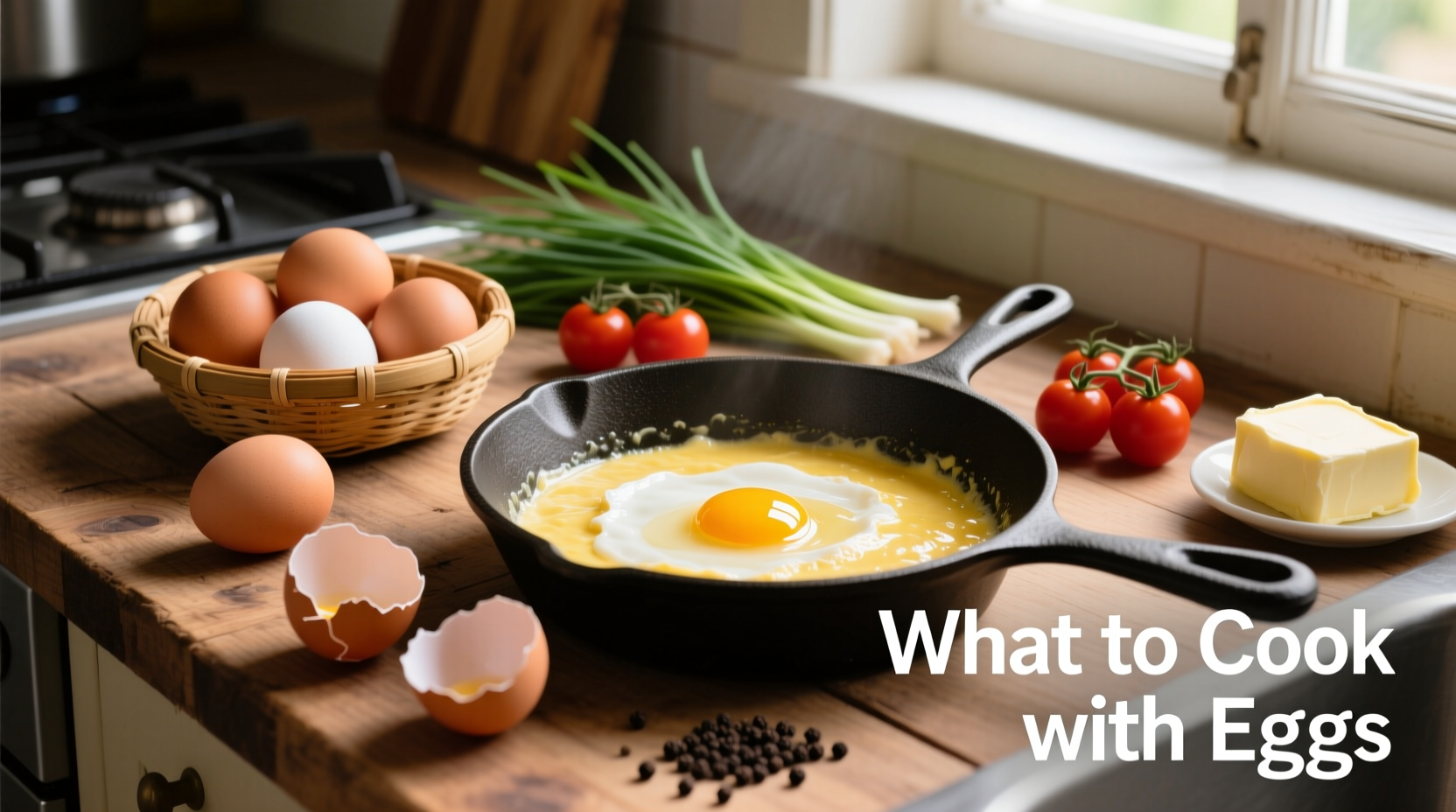Eggs are one of the most versatile ingredients in any kitchen, providing complete protein, essential vitamins, and incredible culinary flexibility. Whether you're feeding a family on a budget or looking for a quick solo meal, eggs deliver exceptional nutrition without breaking the bank. According to the USDA FoodData Central, a single large egg contains 6 grams of high-quality protein, plus vitamins A, B12, and D, all for just 78 calories.
Why Eggs Belong in Your Weekly Meal Rotation
Eggs offer unbeatable convenience and nutrition for home cooks. The American Egg Board reports that 95% of U.S. households purchase eggs regularly because they're affordable, quick to prepare, and work across all meal types. Unlike many protein sources, eggs require minimal preparation time while delivering maximum nutritional value. Their neutral flavor profile makes them adaptable to global cuisines, from Spanish tortillas to Japanese tamagoyaki.
Breakfast Solutions Ready in 15 Minutes or Less
Start your day with these protein-packed morning options that beat store-bought alternatives for both nutrition and cost.
Perfect Scrambled Eggs with Herb Infusion
For restaurant-quality scrambled eggs at home, use this chef-approved technique: Whisk 3 eggs with 2 tablespoons milk, then cook over low heat while stirring constantly with a silicone spatula. Remove from heat just before fully set (they'll continue cooking from residual heat). Finish with fresh chives and a pinch of flaky sea salt. This method prevents rubbery texture while maximizing creaminess.
Avocado Toast with Runny Egg
Toast hearty whole-grain bread while soft-boiling an egg for 6 minutes. Mash ripe avocado with lemon juice and red pepper flakes. Spread avocado on toast, top with the peeled soft-boiled egg, and finish with everything bagel seasoning. This complete meal delivers 20 grams of protein and healthy fats to keep you full until lunch.
| Egg Preparation Method | Protein Content (per serving) | Prep Time | Best For |
|---|---|---|---|
| Soft-Boiled (6 min) | 6g | 8 min | Avocado toast, ramen topping |
| Scrambled (low heat) | 18g (3 eggs) | 10 min | Quick breakfasts, meal prep |
| Hard-Boiled (12 min) | 6g | 15 min | Salads, snacks, meal prep |
| Fried (runny yolk) | 6g | 5 min | Breakfast sandwiches, rice bowls |
Lunch & Dinner Options Ready in 30 Minutes
Eggs aren't just for breakfast—they make satisfying main courses that cost less than $2 per serving.
Spanish Tortilla with Seasonal Vegetables
This traditional Spanish omelet works with nearly any vegetable. Sauté 1 diced potato and 1 sliced onion in olive oil until tender. Whisk 6 eggs with salt, then combine with vegetables. Cook in an oven-safe skillet for 5 minutes, then finish under the broiler until set. The FDA recommends cooking egg mixtures to 160°F for food safety, which this method achieves perfectly. Serve warm or at room temperature with a simple salad.
Shakshuka with Fresh Herbs
For a flavor-packed Middle Eastern favorite, simmer 1 cup crushed tomatoes with 1 diced bell pepper, 1 chopped onion, and spices (cumin, paprika, cayenne) for 15 minutes. Create wells in the mixture and crack 4 eggs into them. Cover and cook until whites set but yolks remain runny (about 5 minutes). Garnish with cilantro and feta cheese. This dish provides complete protein while delivering lycopene from tomatoes and vitamin C from peppers.

Smart Meal Prep Strategies for Busy Cooks
Maximize your time and minimize food waste with these professional kitchen techniques.
Batch-Cooking Hard-Boiled Eggs
Boil a dozen eggs at once for the week ahead. The American Egg Board recommends placing eggs in a single layer in a saucepan, covering with 1 inch of cold water, bringing to a rolling boil, then removing from heat and covering for 12 minutes. Immediately transfer to ice water. Store peeled eggs in water in an airtight container for up to 5 days. This method ensures consistent results while saving daily preparation time.
Dietary Adaptations for Special Needs
Egg dishes easily accommodate various dietary requirements:
- Gluten-free: Use corn tortillas for migas instead of flour tortillas
- Dairy-free: Substitute coconut milk for dairy in custards
- Low-carb: Make crustless quiches with vegetable bases like spinach or zucchini
- Vegan alternative: Use tofu scramble with black salt for eggy flavor
Avoiding Common Egg Cooking Mistakes
Professional kitchens follow these guidelines to maximize egg quality:
- Temperature matters: Use room-temperature eggs for more consistent results in baking and scrambling
- Salt timing: Add salt to scrambled eggs before cooking for better texture (contrary to popular belief)
- Don't overcook: Remove eggs from heat just before they reach desired doneness (they continue cooking off-heat)
- Storage: Keep eggs in their original carton in the main part of the refrigerator (not the door) for maximum freshness
Food Safety Guidelines for Egg Preparation
The FDA provides specific recommendations for safe egg handling:
- Refrigerate eggs at 40°F or below
- Use cooked egg dishes within 3-4 days
- Don't leave cooked eggs at room temperature for more than 2 hours
- When in doubt about an egg's freshness, perform the float test: fresh eggs sink and lay flat, older eggs stand upright, and spoiled eggs float











 浙公网安备
33010002000092号
浙公网安备
33010002000092号 浙B2-20120091-4
浙B2-20120091-4